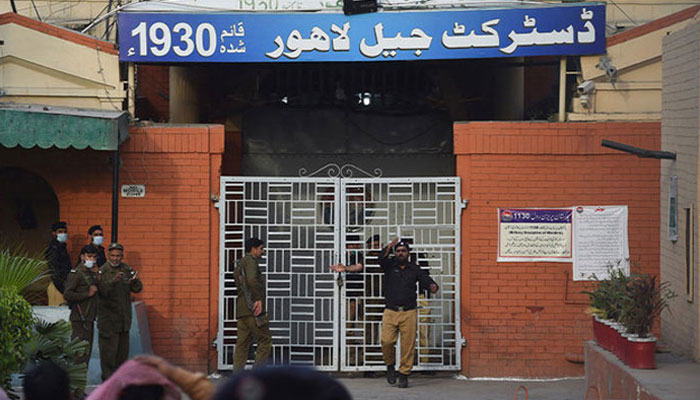Historic changes to Punjab’s prison laws to enhance rights, accountability
Proposed changes to Prisons Act 1894 are expected to modernise structure of department
LAHORE: The Punjab Home Department has drafted amendments to the century-old Prisons Act 1894 and Prisons Act 1900, marking a significant step towards reforming the province’s prison system.
These amendments seek to address longstanding issues in prisoner rights and operational challenges faced by the Punjab Prisons Department.
The reforms are poised to streamline administrative functions, update outdated legal provisions and provide a framework for improved accountability.
The proposed changes to the Prisons Act 1894 are expected to modernise the structure of the department by renaming the post of Director Prisons to IG Prisons and elevating the rank of Jailer to Deputy Superintendent of Prisons. Additionally, the amendments will officially recognise the role of the Deputy Inspector General (DIG) of Prisons, a post that was previously unmentioned in the original law. These adjustments are necessary to reflect the current organisational structure and ensure that legal ambiguities are cleared up.
Currently, the Prisons Act 1894 grants the provincial government the authority to transfer prisoners between facilities, but the decision-making process must be opaque. Under the proposed amendments, the amendments will clarify the process for transferring prisoners, specifying the roles of IG Prisons and Home Secretary, with the provincial government’s cabinet providing final oversight. This change follows a 2016 Supreme Court ruling that clarified the role of the provincial government in such matters.
Another key reform is the overhaul of the Prisons Act 1900, which historically has denied prisoners the right to appeal punitive decisions made by the Superintendent of Prisons. Under the proposed amendment, a prisoner can now appeal such decisions to higher authorities, including the DIG, IG and Home Secretary. This will offer prisoners much-needed recourse and ensure greater transparency and fairness in prison disciplinary procedures. For the first time, a prisoner’s lawyer will be able to cross-examine the Superintendent of Prisons, making the disciplinary process more accountable and less prone to abuse.
These reforms will offer vital recourse for inmates, ensuring better oversight of disciplinary actions and enhancing their legal protections. The amendments are a major step in the ongoing effort to improve the criminal justice system in Punjab.
-
 Ethan Hawke Reflects On Hollywood Success As Fifth Oscar Nomination Arrives
Ethan Hawke Reflects On Hollywood Success As Fifth Oscar Nomination Arrives -
 Tom Cruise Feeling Down In The Dumps Post A Series Of Failed Romances: Report
Tom Cruise Feeling Down In The Dumps Post A Series Of Failed Romances: Report -
 'The Pitt' Producer Reveals Why He Was Nervous For The New Ep Of Season Two
'The Pitt' Producer Reveals Why He Was Nervous For The New Ep Of Season Two -
 Maggie Gyllenhaal Gets Honest About Being Jealous Of Jake Gyllenhaal
Maggie Gyllenhaal Gets Honest About Being Jealous Of Jake Gyllenhaal -
 'Bridgerton' Star Luke Thompson Gets Honest About Season Five
'Bridgerton' Star Luke Thompson Gets Honest About Season Five -
 Prince William On Verge Of Breakdown Because Of 'disgraced' Andrew
Prince William On Verge Of Breakdown Because Of 'disgraced' Andrew -
 Tig Notaro Reflects On Oscar Nod For 'Come See Me In The Good Light': 'I Was Sleeping'
Tig Notaro Reflects On Oscar Nod For 'Come See Me In The Good Light': 'I Was Sleeping' -
 Kenyon Sadiq Sets 40-yard Dash Record At NFL Scouting Combine, Eyes First Round
Kenyon Sadiq Sets 40-yard Dash Record At NFL Scouting Combine, Eyes First Round -
 Talk Show Host Drops Hint About Taylor Swift, Travis Kelce Wedding Date
Talk Show Host Drops Hint About Taylor Swift, Travis Kelce Wedding Date -
 Andrew Scandal Brings New Worries For Prince Harry, Meghan Markle
Andrew Scandal Brings New Worries For Prince Harry, Meghan Markle -
 King Charles Imposes New Restrictions On Ex-Prince Andrew In Surprise Move
King Charles Imposes New Restrictions On Ex-Prince Andrew In Surprise Move -
 Chris Hemsworth Reveals How Elsa Pataky Guides His Career Moves
Chris Hemsworth Reveals How Elsa Pataky Guides His Career Moves -
 Was Travis Barker In A Relationship With Kim Kardashian Before Marrying Her Sister?
Was Travis Barker In A Relationship With Kim Kardashian Before Marrying Her Sister? -
 Brad Pitt Feeling Down In The Dumps After Kids' Snubs As Pals Continue To Paint Angelina Jolie A Villain
Brad Pitt Feeling Down In The Dumps After Kids' Snubs As Pals Continue To Paint Angelina Jolie A Villain -
 Ex-PM Speaks Out On Andrew Mountbatten-Windsor In Newspaper Column
Ex-PM Speaks Out On Andrew Mountbatten-Windsor In Newspaper Column -
 Eric Dane Remembered In Glowing Tribute By Trans Activist In 'Grey's Anatomy'
Eric Dane Remembered In Glowing Tribute By Trans Activist In 'Grey's Anatomy'




